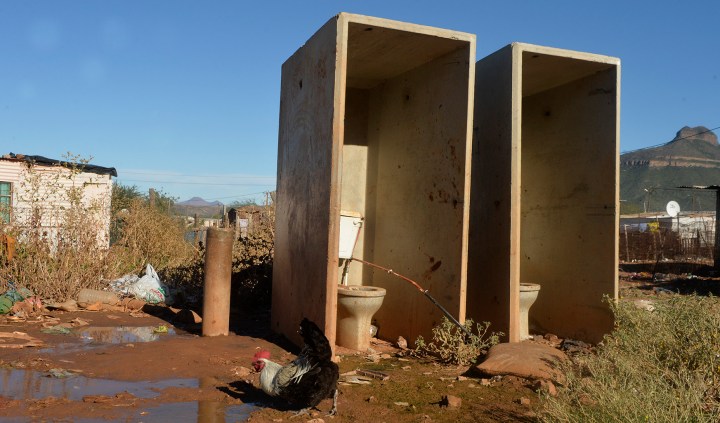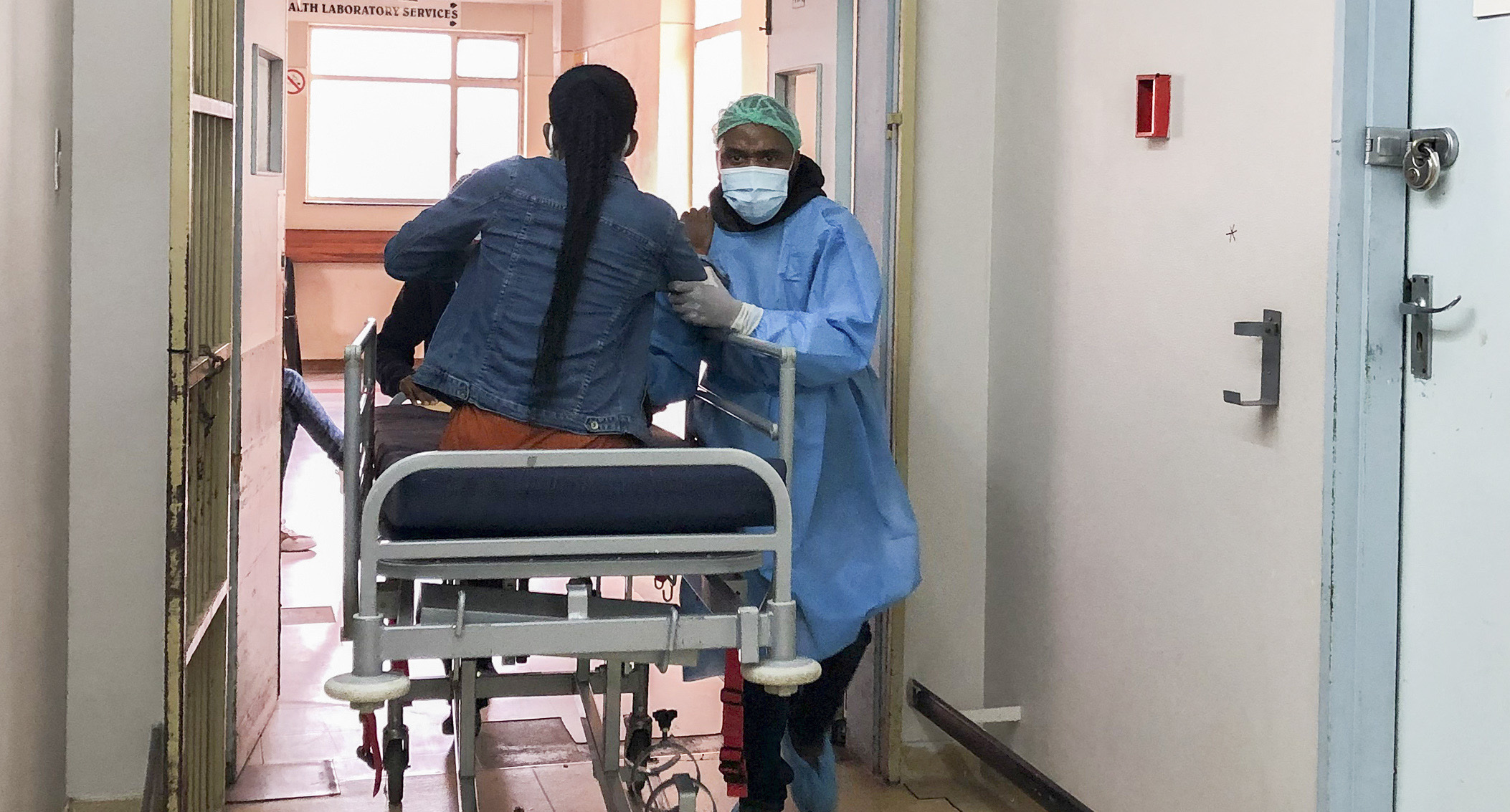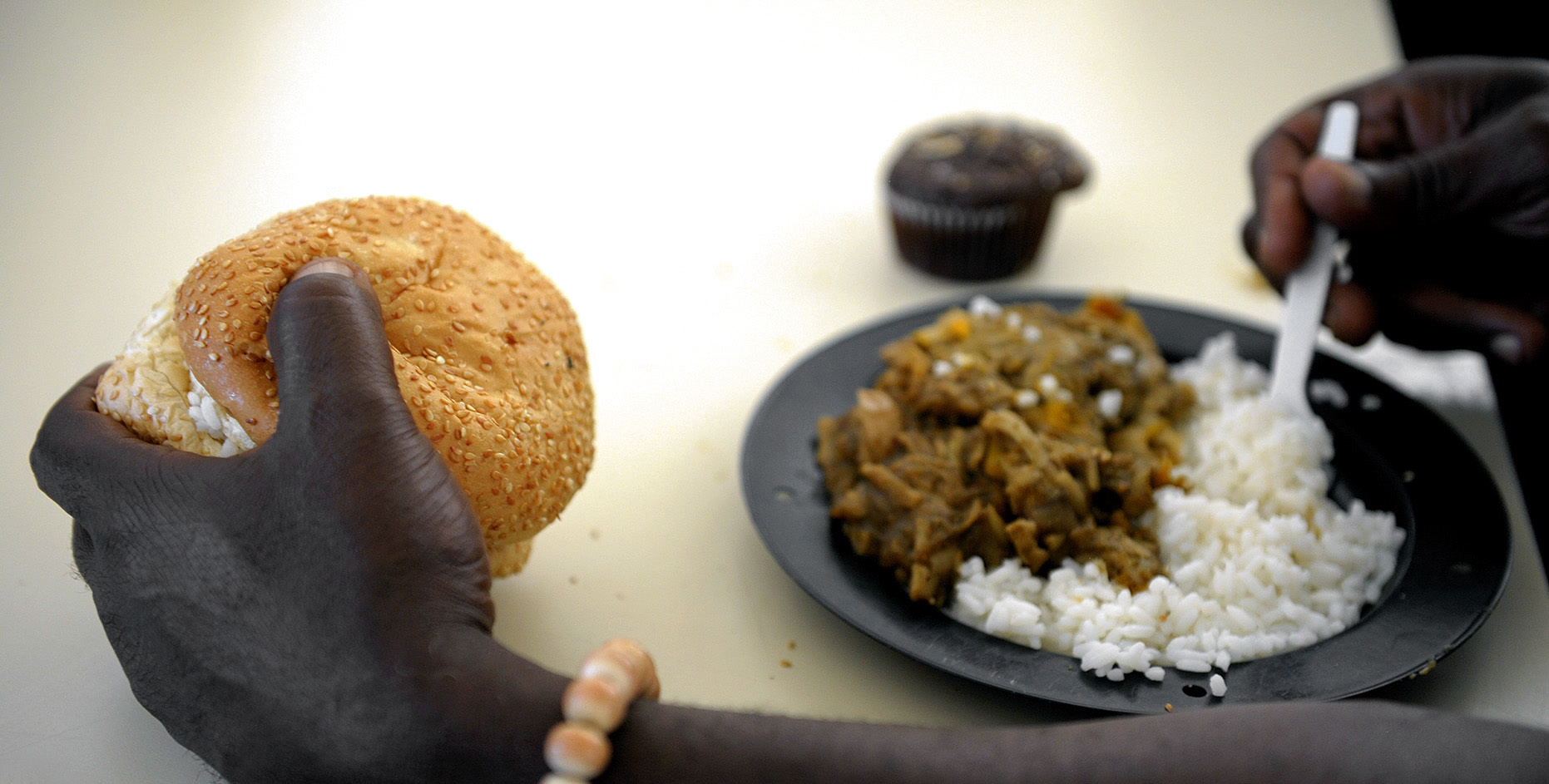Maverick Citizen
Covid-19 pandemic the most dramatic setback to global sustainable development ‘in at least a generation’

While the Covid-19 pandemic, now in its second year, has proven a significant setback to global development, people-driven innovation and a drive to build resilient communities and systems have proven grounds for optimism, the Gates Foundation said in its fifth annual Goalkeepers Report.
The Covid-19 pandemic has caused “the most dramatic setback in at least a generation” to the sustainable development goals, the CEO of the Gates Foundation, Mark Suzman, said as the organisation launched its fifth Goalkeepers Report.
The report measures 18 key indicators of the Sustainable Development Goals adopted by the United Nations in 2015.
“The report this year is outlining some of those challenges. It shows that, for example, while 90% of high-income countries will return to their per capita income levels of 2019 before Covid-19, very shortly by the end of this year or early next, for the developing world, only one in three [middle- and low-income] countries will return to those levels by that timeline.
“While some of the disruptions to key indicators like childhood immunisation were not as bad as we feared… we thought there might be a drop of up to 14 percentage points, which would have taken us back 25 years in global vaccination rates, but there still has been a significant drop. This year’s report calculated that drop at around 7%, which still translates into millions of children unvaccinated and that has serious… consequences.
“We have seen big challenges around gender… women have been disproportionately affected by the economic consequences, partly because they [mostly] are caregivers in households. They do three times as much unpaid care as men across the world. And that globally, again, 13 million more jobs have been lost by women than men. [T]hat calls for… a much more intentional focus response on an economic recovery that includes women.”

A health worker wheels a patient into Dora Nginza Hospital’s Covid-19 ward. (Photo: Shiraaz Mohamed)
Suzman said the good news is that there are still important steps that can be taken to recover.
“First and most important[ly], is an aggressive expansion of vaccine availability globally, including across the continent of Africa. There is no question that it is an outrage, frankly, that at the moment, 80% of all vaccines have been distributed to high and upper middle-income countries, and only 1% of vaccines have been distributed in low-income countries.
“On the continent of Africa, I believe the current vaccination rate is around 1.8%, where the majority of rich countries, the majority of their population, is now vaccinated. That is both morally wrong [and] wrong on a public health level, and it is short sighted at the global economic level because it disrupts long term economic recovery.
“A key message is for a rapid expansion of vaccine availability that needs to start with COVAX initiatives, that we’ve been supportive of, and there may be some questions on that, though it has clearly not been able to provide the volume of vaccines individually hoped for.
“As a reminder, COVAX was set up well over a year ago by us and a number of governments to try and provide equitable global access for every country on the planet, to vaccinate at least 20% of their population of healthcare workers and high-risk groups. And that simply didn’t happen because high income countries ended up hoarding vaccines and not allowing the supplies to be distributed in the way they could and should.

Ziyanda Matomane after her vaccination in Mthatha, Eastern Cape. (Photo: Hoseya Jubase)
“That needs to change in the coming months. And the upcoming UN General Assembly provides a real opportunity to both increase funding distribution and resourcing for that, as well as the efforts that are being made in many countries for direct vaccine acquisition through platforms like the Africa Medical Supplies Platform (AMSP) in Africa.
“There is a real opportunity going forward to think about how we can learn from this complex (situation), both deal with the current consequences, but make sure we are putting in place some of the innovations,” said Suzman.
“There are a number of those kinds of innovations and expansions in financial inclusion, particularly for women, that are platforms we can build on and grow on for broader economic and social development, and that invest in long term health capacity.
“The African Union has an ambitious vision which is very supportive of increasing African vaccine manufacturing capacity. We’ve given significant support to the African CDC over the course of the crisis. In fact, the very first grant we made as a foundation for the Covid-19 crisis was in February of last year to the Africa CDC to start ramping up for this.”
Cheikh Oumar Seydi, who leads the foundation’s work in Africa, said the people of the continent “feel much further from recovery than those in richer countries”.
“The pandemic, as you’ve noted, has had a disproportionate impact – the countries that were most vulnerable have been hit the hardest and will likely be slower to recover. And now, as we all know, we are coping with the rapidly spreading Delta variant… the pandemic has pushed up to 40 million people into extreme poverty.
“Countries such as South Africa have hit record highs in terms of the level of unemployment. And this is all mostly because of the pandemic. These disparities, as you noted, are not just geographical, [but] sadly, we seem to bear the brunt of this pandemic.
“With increased unemployment, we have seen gender-based violence also increase. There have been limits to some of the key services that women would benefit from, including family planning… [We] have also seen the employment [of women] decrease by 1.9% in 2020. (Men in comparison saw a rise of 0.1%)
“When I turn to what is more hopeful, looking at what is happening in the continent, I’d like to say a few words about African institutions and individuals who are leading the response effort,” Seydi said, adding that not all was lost and that significant investments on the continent were paying off.

Food shortages have reached critical levels in Africa. (Photo: Joyrene Kramer)
“We’ve seen significant investment into science… giving the ability to track and learn from viruses like Ebola and yellow fever. This is absolutely critical because one of the things that we’ve noticed as this was unfolding, is our ability to understand what is happening. And if you don’t understand what is happening, it’s very difficult to take real action.
“I also need us to think about what else happened in 2019. The Africa CDC was established [to]… analyse and learn from such diseases, including Covid-19… The only reason the world knew that the more infectious and deadly Delta variant had emerged in South Africa, was because the country had actually invested in [research and development]. South Africa was one of the first countries to discover that the coronavirus identified in the country could circumvent the immune system.
“Also last year, we reflected on what is being done. Eighty percent of all African member states in the World Health Organisation region had agreed that by 2023, they will perform a needs assessment to identify the critical gaps in the health systems, and would have established a coordination mechanism to scale innovation. So, this is a good start.
“The Africa Center for Disease Control, which was created by the team in Africa – our CDC – was only founded in 2017. [They] were hit by this pandemic in their infancy… When I reflect on those days, ideally only two countries had the capacity to diagnose properly at the time. And that quickly went to about 40 or so. And we as the foundation are very proud to have been associated with the work that the CDC has done over the years, including the support early on when they were set up, and then later on their capacity to also implement. And more recently, we’ve been involved in supporting them to help them deal with the Delta variant.
“We’ve also been helping the African Medical Supplies Platform, which many of you know about. This is really my favourite… if I were to think about an initiative that is Africa-owned and Africa-led, and it was launched with a number of constituencies that included governments, the private sector and others to enable the African Union and member states to purchase certified medical supplies such as diagnostics, PPE and monitoring devices.
“This is the kind of private-public partnership that we should support and is increasingly vital. And really leveraging the power of the private sector in playing the pivotal role in tackling challenges like this pandemic.
“As we think about the future, we need to sustain these kinds of activities in order to help us reach the Sustainable Development Goals.
“We believe that the sustainable regional development of a vaccine manufacturing ecosystem needs to be a priority in the continent. We all know that we’ve had difficulty accessing [vaccines]. Despite the fact that 17% percent of the world’s population is in Africa, only less than 1% of our vaccine manufacturing capacity resides here. And that is the gap that creates difficulty in terms of access.
“You may have the money, but you may not be able to tap into [the vaccines]. That’s the reason our foundation is very supportive of the Africa CDC and the African Union to develop that capacity in manufacturing 60% of the continent’s annual (vaccine) needs by 2040. It’s been also very exciting to see amazing commitments in support of this activity, especially the leadership of the African Union, the Africa CDC and the WHO.
“Finally, with more forward-thinking investments, we believe that Africa and the world can benefit from improved health security and pandemic preparedness, as well as obviously new sources of scientific innovation.
“The main message would be that hope is on the way,” Suzman said, referring to the increased availability of vaccines for the African continent.
“We are already seeing some of those numbers increase from the work of COVAX. We are going to start seeing those volumes significantly increase coming into the countries in the next weeks and months ahead. We have, and are, working with partners like the African CDC, the WHO and others to put plans ahead to make sure that that distribution is equitable.
“It is true, there’s no denying the challenges at this date. And the numbers speak for themselves. That is why it is so critical that we have this global focus now. I do mean a global focus on making sure that we’re maximising the access to those vaccines. I can’t give you some concrete numbers at this stage, because those are being worked on in call-backs, but I do think this is a corner that we are turning,” he added.
Other findings highlighted by the report include:
- Because of Covid-19, an additional 31 million people were pushed into extreme poverty in 2020 compared to 2019.
- The “breathtaking innovation” was only possible because of global collaboration, commitment and investments over decades.
- Although men are 70% more likely to die from Covid-19, women continue to be disproportionately affected by the economic and social impacts of the pandemic. This year, women’s employment globally is expected to remain 13 million jobs below the 2019 level – while men’s employment is largely expected to recover to pre-pandemic rates.
- Early data suggests that learning losses will be greatest among marginalised groups with growing educational disparities that were found even in wealthy countries. Learning loss among third graders from high-poverty schools was triple those of their peers in low-poverty schools.
- The pandemic and resulting economic crises have reversed progress on eliminating poverty by four years, and where there was extreme poverty coupled with epidemic waves, economic challenges and demographic factors, poverty reduction is expected to stall at or near current levels for the next few years.
- While this number is vastly different in different regions, the global data for 2020 indicates that 24% of children under the age of five were stunted.
- Global hunger has increased in the past year due to conflict, extreme weather events and the economic slowdown from the pandemic. The pandemic has highlighted the need for markets and decision-makers to have access to information that will enable them to formulate a response to hunger and poverty and to adapt to the impacts of climate change.
- There was a slight increase in maternal deaths globally as prenatal care was interrupted for many women due to the pandemic. In 2020, the global maternal mortality ratio was 152 deaths per 100,000 live births, up from 151 deaths per 100,000 live births in 2019. This trajectory projects 133 deaths per 100,000 live births in 2030, nearly double the SDG target.
- While mortality rates of children under five remain at the lowest point in history, the pandemic has disrupted health services threatening to undo this by creating a bar to childhood vaccinations, postnatal care and access to adequate nutrition.

Women walk home after fetching water from communal water tanks in Gqeberha. (Photo: Mike Holmes)
In their joint letter about the Goalkeepers Report, Bill Gates and Melinda French Gates wrote: “Indeed, it has been an unprecedented year: Millions of people around the world have died from Covid-19. Millions more have felt the shocks of a global economy in crisis. And still the pandemic rages, with ever more contagious and severe variants spreading around the globe.
“In so many ways, the pandemic has tested our optimism. But it hasn’t destroyed it.”
They added that in many respects, the plan-makers and innovators of the world had surprised all.
“With one hand tied behind their backs, countless individuals, organisations, and countries went above and beyond to innovate, adapt and build resilient systems, and for that, they deserve the world’s gratitude.
“Under the most difficult circumstances imaginable, we’ve witnessed breathtaking innovation. We’ve seen how quickly we can change our behaviour, as individuals and as societies, when circumstances require it.” DM/MC
"Information pertaining to Covid-19, vaccines, how to control the spread of the virus and potential treatments is ever-changing. Under the South African Disaster Management Act Regulation 11(5)(c) it is prohibited to publish information through any medium with the intention to deceive people on government measures to address COVID-19. We are therefore disabling the comment section on this article in order to protect both the commenting member and ourselves from potential liability. Should you have additional information that you think we should know, please email [email protected]"





 Become an Insider
Become an Insider